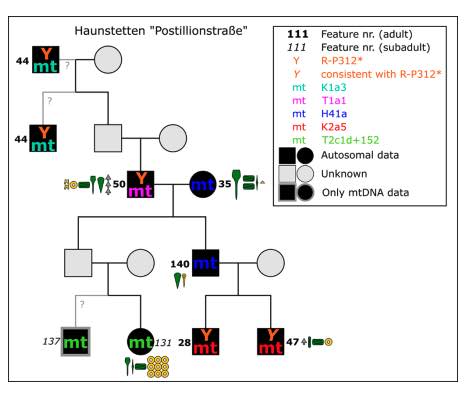Mittnik et al. 2019

Authors: Alissa Mittnik, Ken Massy, Corina Knipper, Fabian Wittenborn, Ronny Friedrich, Saskia Pfrengle, Marta Burri, Nadine Carlichi-Witjes, Heidi Deeg, Anja Furtwängler, Michaela Harbeck, Kristin von Heyking, Catharina Kociumaka, Isil Kucukkalipci, Susanne Lindauer, Stephanie Metz, Anja Staskiewicz, Andreas Thiel, Joachim Wahl, Wolfgang Haak, Ernst Pernicka, Stephan Schiffels, Philipp W Stockhammer and Johannes Krause
Abstract: Revealing and understanding the mechanisms behind social inequality in prehistoric societies is a major challenge. By combining genome-wide data, isotopic evidence, and anthropological and archaeological data, we have gone beyond the dominating supraregional approaches in archaeogenetics to shed light on the complexity of social status, inheritance rules, and mobility during the Bronze Age. We applied a deep microregional approach and analyzed genome-wide data of 104 human individuals deriving from farmstead-related cemeteries from the Late Neolithic to the Middle Bronze Age in southern Germany. Our results reveal individual households, lasting several generations, that consisted of a high-status core family and unrelated low-status individuals; a social organization accompanied by patrilocality and female exogamy; and the stability of this system over 700 years.